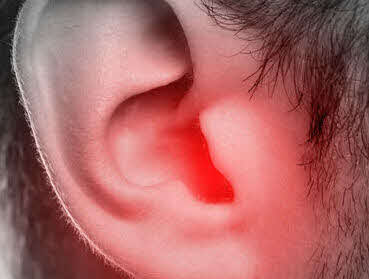Too loud for your heart, part 1
Noise disruptions can affect more than just your ears
Partner content: Content has been reproduced with the permission of, and is wholly owned by Singapore Heart Foundation. Great Eastern does not own or claim to own any rights to the content shared.
The world we live in has become a very noisy place. Noise is our constant companion – from the honking of cars and buses, to the chatter of neighbours and pets, and especially the nagging buzz of our gadgets; we are enveloped in a never-ending racket. This bothersome uproar isn’t just about sound. This barrage of discord disrupts our peace and tranquillity; it affects our daily lives and, unsurprisingly, impacts both our physical and mental health.
Noise not only interferes with interpersonal communication, but also disturbs our sleep and causes annoyance. Furthermore, long-term exposure to significant noise levels has been shown to negatively impact our health and well-being, even when the noise level is what we experience in our everyday lives. The World Health Organization (WHO) estimates that in western Europe, one of the most urbanised areas in the world, noise causes cognitive impairment in children, disrupting 903,000 life-years due to noise-induced sleep disturbance and 22,000 life-years due to tinnitus (ringing in the ears). The WHO also noted that noise causes heart diseases.
Impact of noise on the heart
Exposure to noise affects multiple organs and body systems. When we hear noise, the body goes on high alert, which causes a flood of stress hormones. These hormonal responses include the activation of the sympathetic responses (a.k.a. fight–flight reactions) as well as the release of corticosteroid hormones (a.k.a. defeat reaction). These hormones can cause an increase in blood pressure and heart rate. It has been found that for every 10 dB increase in noise level, the blood pressure increases by 0.84/0.44 mmHg. Frequent exposure to traffic noise, which ranges from 70 to 80 dB, may increase blood pressure by almost 7/4 mmHg.
Even if the noise is not loud, it disturbs our concentration, relaxation and sleep, triggering hormonal responses that may disrupt the level of blood cholesterol, blood sugar, magnesium and calcium. These factors increase the risk of heart diseases, including heart attack, in people with prolonged noise exposure. For example, individuals who are frequently exposed to railway noise are at an increased risk of heart diseases by 55%.
Noise-disturbed sleep and its effects on the heart
Sleep is important because it allows the body to slow down, to recuperate from a stressful day, and prepare for the new day. In contrast, disturbed sleep causes several hormonal changes. It impairs insulin secretion and decreases insulin sensitivity; both of these could lead to an increase in blood sugar levels. Appetite-regulating hormones also become dysregulated, leading to more intense hunger the next day; this in turn could lead to overeating and contribute to obesity and high blood cholesterol. Therefore, it is no surprise that noise-disturbed sleep has been associated with obesity and diabetes, both of which are risk factors that aggravate heart diseases.
Many people have reported that they can be accustomed to noise, and are able to sleep despite the noise. However, habituation to noise is not complete and the body response persists, albeit at a lower level. Therefore, quiet sleep remains better than sleep that is regularly enveloped by noise.
Give your heart peace and quiet
Scientific literature shows that noise is not only a nuisance that disturbs sleep, but also a contributor to the development of heart diseases and its risk factors, such as hypertension and diabetes. Noise-induced disturbance to sleep may lead to adverse health effects. Therefore, measures should be implemented at national and community levels to reduce noise exposure.
Find out how to reduce the level of noise you are exposed to here.

Department of Cardiology
National Heart Centre Singapore
Let us match you with a qualified financial representative
Our financial representative will answer any questions you may have about our products and planning.








